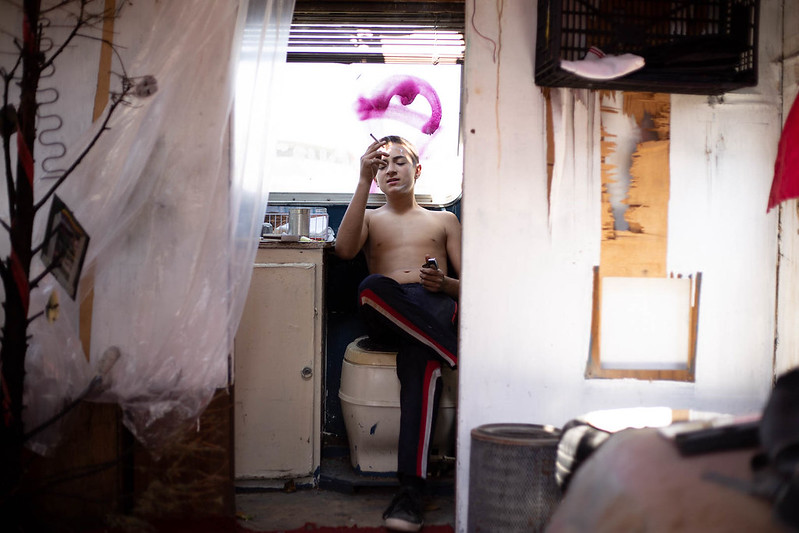
Sundance Film Review: Summer White (Blanco de Verano)
Sundance
Summer White (Blanco de Verano)
Sundance Film Festival
Director: Rodrigo Ruiz Patterson
Summer White (Blanco de Verano) is a curious little film. In Sundance’s World Drama section, it’s a character study of Rodrigo (Adrián Rossi), a 13-year-old boy who lives with his doting mother, Valeria (Sophie Alexander-Katz). Their relationship feels Oedipal from the get-go, and as Valeria starts dating Fernando (Fabián Corres), the adolescent Rodrigo vies to stake his claim against this intruder. The film is a slow burn, and almost mimetic of Rodrigo’s waxing and waning tase for Fernando, it coheres then agitates our comfort with it. It’s the type of Sundance film that needs time to seep into the crevasses of our own societal considerations of teenhood and how accountable we feel that we can hold Rodrigo for the shenanigans he incites.
As Fernando moves in both figuratively and literally with Valeria and Rodrigo, Rodrigo pulls away into a nearby junkyard to pass the time. He takes refuge in an abandoned camper that he fixes up, and uses the site as a place where he can experiment with fire, such as burning a tree. It’s an apt metaphor for his testing of the limits of how far he can assert himself against Fernando, starting with pouring acrylic paint on one of Fernando’s suits when the three move into and paint a new residence together. Meanwhile, Fernando makes an effort to connect with Rodrigo, seeing an opportunity in teaching the kid how to drive—his car has a manual transmission, which proves a symbol for their power struggle.
Rossi excels in exuding the awkwardness of Rodrigo’s position. It’s uncomfortable to watch, but deftly executed through Rodrigo’s sparse lines and rigid body language. It’s difficult to see through Rodrigo’s tough, 13-year-old-boy veneer, as he careens from contentment to arson. Herein lies the subtle storytelling technique from director Rodrigo Ruiz Patterson—it anchors in the whims of a stone-faced teenager, and I admire the delicacy with which he maneuvers the plot along this course. Charmingly, Rodrigo’s mood swings accelerate and decelerate much like a manual transmission might, depending on the equilibrium of the pedals of Fernando and Valeria.
Summer White (Blanco de Verano) seems to want to revel in its metaphors. Fire and the manual transmission work, but the deck of playing cards with which Rodrigo likes to fidget feel shoehorned in. The cigarettes that he and Valeria impulsively smoke, however, are a nice fire synecdoche that supports their bond in which Fernando can’t join. (Continued below.)
Summer White (Blanco de Verano)’s artistry lies in the harmonies of its acting, narrative storytelling and nuanced production that reveal the angst of its character economy. It doesn’t offer traditional payoffs that we may want or expect as viewers, and it’s certainly better for it. This is a film for people looking to challenge their sensibilities of narrative filmmaking, and if you’re ready to augment your emotional intelligence, go see it. –Alexander Ortega
Showtimes:
Jan. 27 // 10:00 p.m // Redstone Cinema 2 Park City
Jan. 28 // 6:00 p.m // Broadway Centre Cinema 6
Jan. 30 // 3:00 p.m // Sundance Mountain Screening Room
Jan. 31 // 6:00 p.m // Library Center Theatre Park City
Feb. 1 // 4:00 p.m // Holliday Village Cinema 4
Read more of SLUG‘s comprehensive coverage of the 2020 Sundance Film Festival.